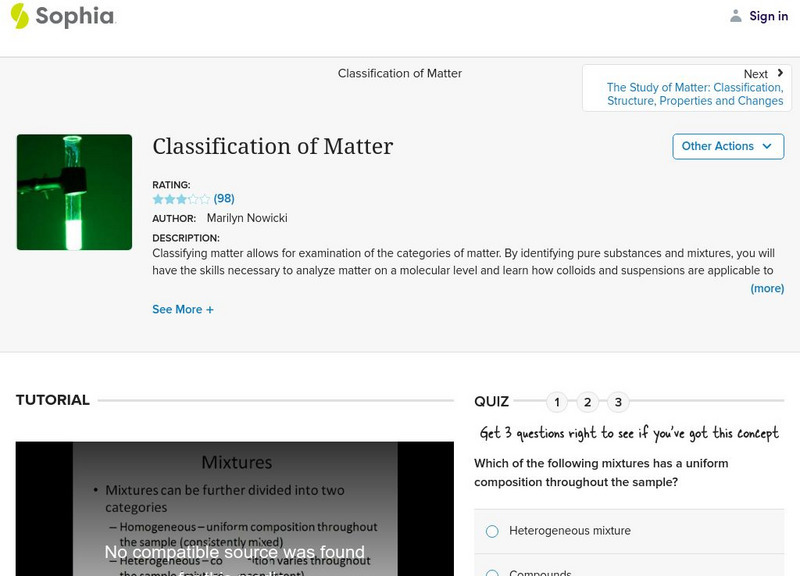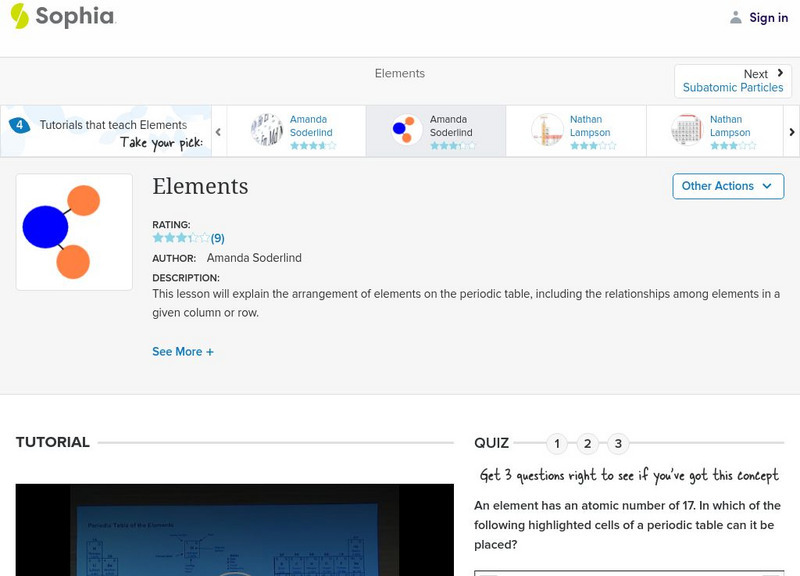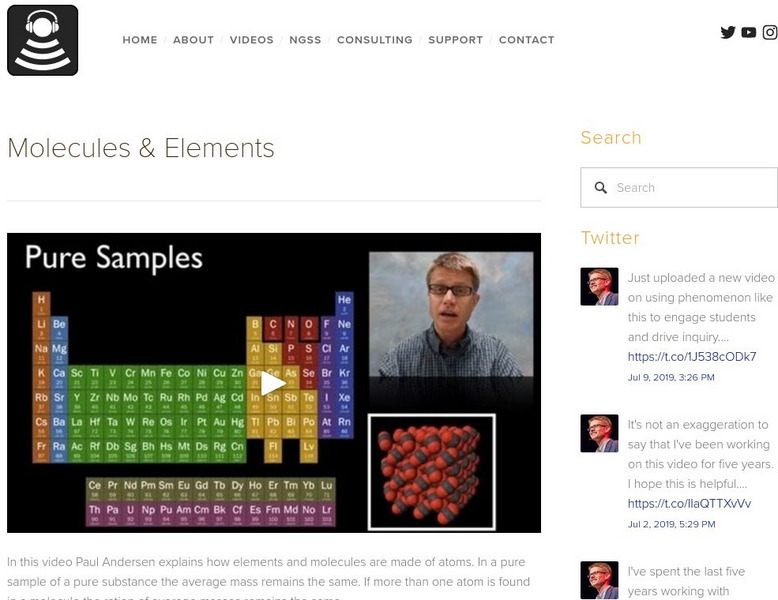Curated Video
Element
An element is a pure substance that cannot be broken down any further by chemical means. A Twig Science Glossary Film. Key scientific terms defined in just 60 seconds using stunning images and concise textual definitions. Twig Science...
Curated Video
Compound
A substance composed of more than one chemical element, whose atoms are held together by strong chemical bonds and are combined in a fixed ratio. A Twig Science Glossary Film. Key scientific terms defined in just 60 seconds using...
Curated Video
GCSE Chemistry - Purity and Formulations #62
In this video, you'll learn: - What the term 'purity' means - How we use physical and chemical tests to check for purity - The effect of purity on melting and boiling points - What the term 'formulation' means - Some common uses of...
Curated Video
Mixtures and Solutions
Mixtures and Solutions explores properties of matter by differentiating between pure substances, mixtures, and solutions.
Visual Learning Systems
The World of Atoms and Compounds
In this video, the concept of atoms and elements is introduced, explaining how everything we see is made up of tiny particles. The video also introduces the concept of chemical compounds, which are substances formed by the combination of...
msvgo
Importance of chemistry
It explains various uses of the branch chemistry in the various fields.
Curated Video
Testing Water: Presence and Purity
In this video, the presenter demonstrates two tests for water - one that tests for the presence of water and another that tests for the purity of water. The first test involves heating hydrated copper sulfate crystals which turn white...
Visual Learning Systems
Introduction to Elements and Atoms
This video explains the differences between copper and helium, highlighting their properties as elements. It introduces the concept of elements as chemically pure substances that cannot be further simplified. The video also mentions the...
Professor Dave Explains
The Isolation of Natural Products: Morphine and Other Alkaloids
In the early 19th century, we were still in the habit of searching for plants with medicinal properties. But we were finally beginning to develop the capacity to identify active ingredients within those plants, isolate them, and purify...
Schooling Online
Chemistry Properties and Structure of Matter: Properties of Matter - Pure Substances and Mixtures
Introductions are important. That’s why we’re keeping things simple. Sail into the Preliminary Chemistry course with a bunch of rowdy pirates. This lesson will classify matter as pure substances and mixtures. Definitions included:...
Curated Video
Pure Substances vs. Mixtures: Understanding the Properties and Differences
The video discusses the concept of pure substances in chemistry and highlights the differences between pure substances and mixtures. The presenter explains that pure substances are defined as a single element or compound that is not...
msvgo
Elements and Its Classification
It explains the characteristics of an element and talks about elements such as metals, non-metals, metalloids and noble gases.
Professor Dave Explains
Types of Matter: Elements, Compounds, and Mixtures
What's the difference between a physical change and a chemical change? What are elements, compounds, pure substances, and mixtures? So many definitions to learn! Don't worry, Professor Dave will take you through the details.
Sophia Learning
Sophia: Science Tutorials: Classification of Matter
Created to teach students of the 21st century, SOPHIA is bringing classification of matter straight to your fingertips. Become the commander of your own learning experiences as you take part in this interactive tutorial. [4:52]
Sophia Learning
Sophia: Elements: Lesson 3
This lesson will explain the arrangement of elements on the periodic table, including the relationships among elements in a given column or row. It is 3 of 4 in the series titled "Elements."
Sophia Learning
Sophia: Classification of Matter
This lesson will introduce the systematic classification of matter used in chemistry, defining the terms heterogeneous, homogeneous, pure substance, mixture, compound, element and providing examples.
Khan Academy
Khan Academy: Empirical Formula From Mass Composition
Calculating the empirical formula from the mass percent composition. [4:35]
Bozeman Science
Bozeman Science: Ap Chemistry: Molecules & Elements
In this video, Paul Andersen explains how elements and molecules are made of atoms. In a pure sample of a pure substance the average mass remains the same. If more than one atom is found in a molecule the ration of average masses remains...





